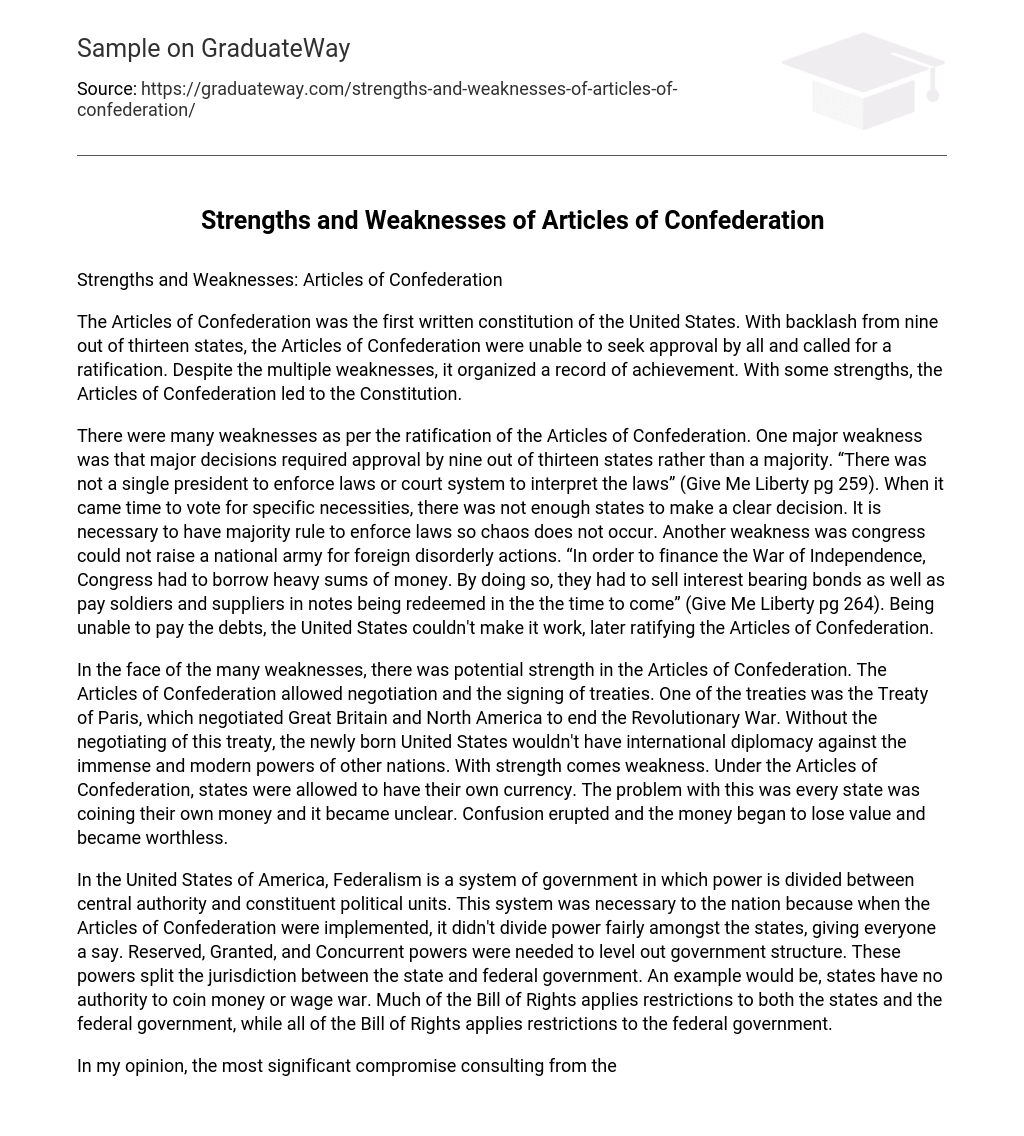Strengths and Weaknesses: Articles of Confederation
The Articles of Confederation was the first written constitution of the United States. With backlash from nine out of thirteen states, the Articles of Confederation were unable to seek approval by all and called for a ratification. Despite the multiple weaknesses, it organized a record of achievement. With some strengths, the Articles of Confederation led to the Constitution.
There were many weaknesses as per the ratification of the Articles of Confederation. One major weakness was that major decisions required approval by nine out of thirteen states rather than a majority. “There was not a single president to enforce laws or court system to interpret the laws” (Give Me Liberty pg 259). When it came time to vote for specific necessities, there was not enough states to make a clear decision. It is necessary to have majority rule to enforce laws so chaos does not occur. Another weakness was congress could not raise a national army for foreign disorderly actions. “In order to finance the War of Independence, Congress had to borrow heavy sums of money. By doing so, they had to sell interest bearing bonds as well as pay soldiers and suppliers in notes being redeemed in the the time to come” (Give Me Liberty pg 264). Being unable to pay the debts, the United States couldn’t make it work, later ratifying the Articles of Confederation.
In the face of the many weaknesses, there was potential strength in the Articles of Confederation. The Articles of Confederation allowed negotiation and the signing of treaties. One of the treaties was the Treaty of Paris, which negotiated Great Britain and North America to end the Revolutionary War. Without the negotiating of this treaty, the newly born United States wouldn’t have international diplomacy against the immense and modern powers of other nations. With strength comes weakness. Under the Articles of Confederation, states were allowed to have their own currency. The problem with this was every state was coining their own money and it became unclear. Confusion erupted and the money began to lose value and became worthless.
In the United States of America, Federalism is a system of government in which power is divided between central authority and constituent political units. This system was necessary to the nation because when the Articles of Confederation were implemented, it didn’t divide power fairly amongst the states, giving everyone a say. Reserved, Granted, and Concurrent powers were needed to level out government structure. These powers split the jurisdiction between the state and federal government. An example would be, states have no authority to coin money or wage war. Much of the Bill of Rights applies restrictions to both the states and the federal government, while all of the Bill of Rights applies restrictions to the federal government.
In my opinion, the most significant compromise consulting from the Constitutional Convention in Philadelphia was the Connecticut Compromise. I thought it was very interesting how one person was able to believe that portioning the Senate and House of Representative based on population. Each state is equally represented based on the amount of inhabitants living in the state. I saw it to be fair and intriguing considering this is still how our government runs today.
With bad comes good. The Articles of Confederation were minimized due to the many flaws it possessed. A new government had to be in effect and the Constitution was able to make it a fair medium without weaknesses. As history is an important topic, it is astonishing how something that occurred centuries ago are still in effect today.





